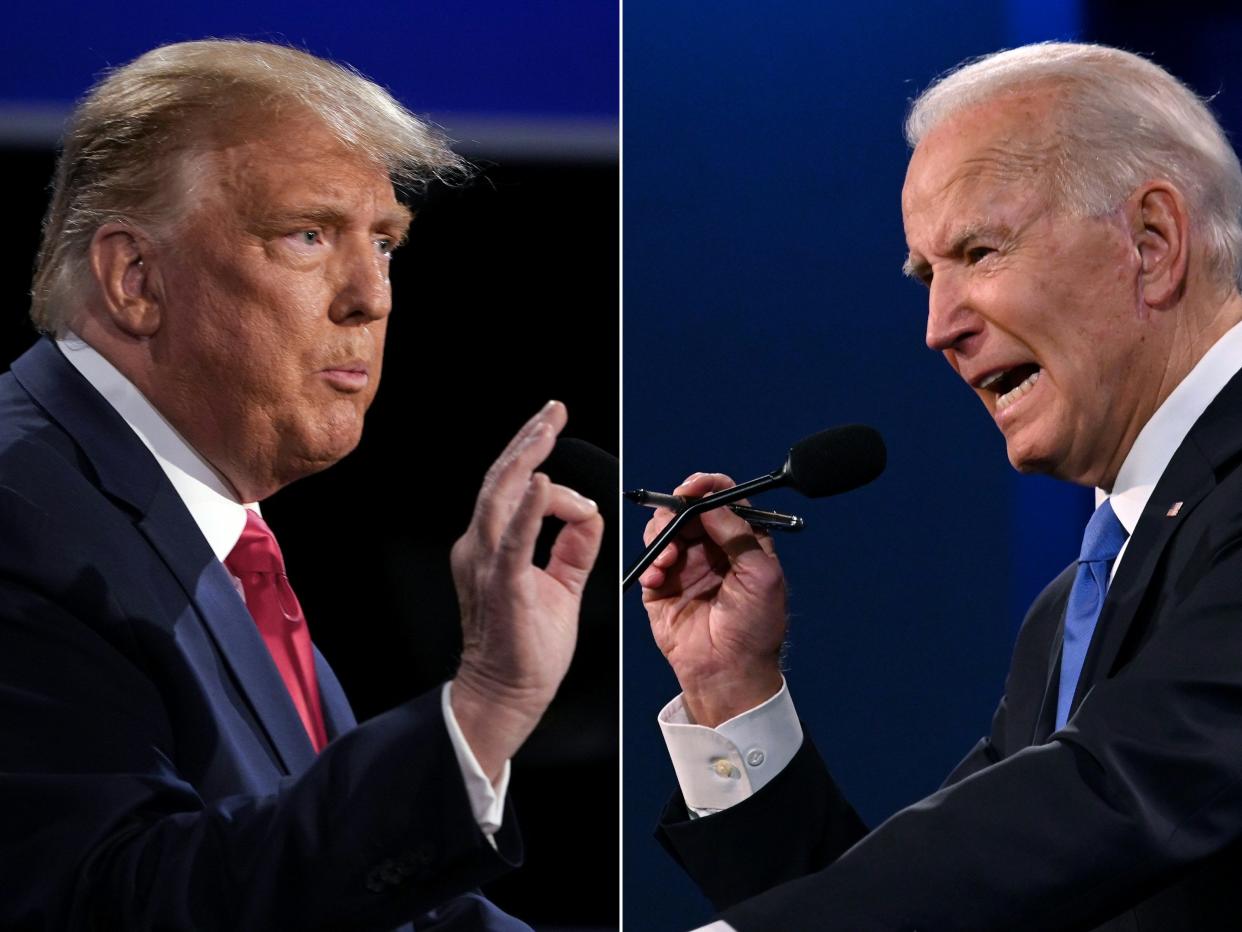Paleologos on the poll: Could third party candidates make the difference in 2024?

- Oops!Something went wrong.Please try again later.
- Oops!Something went wrong.Please try again later.
When the newly-formed No Labels Party announced they were fielding a third-party ticket for the 2024 presidential election, I – like many of you – rolled my eyes. I’ve been polling long enough to know the drill:
A high percentage of voters say they prefer a third-party candidate.
No real credible third-party candidate emerges.
Third-party candidates are shut out of debates.
Voters are forced to choose between the two major party nominees.
Third-party candidates may get 1-2% percent of votes cast (if they are lucky).
Take last presidential election, for example. In the summer of 2019, a Suffolk University/USA TODAY poll posed the question to voters: Would you prefer to re-elect Donald Trump, vote for the eventual Democratic nominee, or choose a third-party candidate? Exactly 9 percent said they would vote for a third-party candidate, significantly higher than the combined 2 percent who actually voted for Libertarian Jo Jorgensen, Green Party nominee Howie Hawkins, or another third-party candidate.
Now it’s the summer of 2023. In today’s Suffolk University national poll, 23% of registered voters say they will vote for an unnamed third-party candidate against Democrat Joe Biden and former President Republican Donald Trump. That’s almost 3 times as many as in 2019. In a matchup between Biden and Republican hopeful Ron DeSantis, 25% said they would vote for a third-party candidate.
Unfortunately, the Americans who feel the least served by our political system’s two parties are the less fortunate and young people. Among voters making less than $20,000 per year, the third-party number swells to 29%; among those ages 18-34 years it is 30%, and among independents – the fastest growing block of voters in the country – 41% would vote third party, 21% for Biden, 21% for Trump, and 16% are undecided.
But if the parties rally around their nominees, isn’t this still a non-story? It's often assumed in political science that Democratic voters will support the party’s nominee, whoever it is, and that Republican voters will behave the same. But the poll tells another story, with many selfish primary voters defecting to the third-party column if their candidate isn’t nominated.
Let’s start with Trump voters. The poll looked at two types of Trump voters: “Trump loyalists” who will cast a ballot for him in their state’s GOP Primary/Caucus, and all Trump voters – even the ones who skip the party primaries. Among Trump loyalists, 23% said they would vote for a third-party candidate if DeSantis is nominated instead and faces Biden. Among all Trump voters from the general election ballot test, 25% would opt for the third-party candidate. One in four Trump voters thumbing their noses at their party is not good news for DeSantis.
DeSantis voters appear more loyal to the party, though there is still leakage. Among DeSantis voters in the GOP Primary, 11% would vote for a third-party candidate in a Biden-Trump matchup. But 20% of DeSantis general election voters would not vote for Trump and would rather vote third-party. Even among the seven other Republican Primary candidates combined, 27% would vote third-party in a Biden-DeSantis matchup and 42% would vote third-party in a Biden-Trump rematch.
On the other side of the aisle, Biden is opposed by two announced candidates – Robert F. Kennedy, Jr., and Marianne Williamson. In the poll, a whopping 42% of Kennedy and Williamson voters combined are choosing a third-party candidate in a Biden-Trump matchup, and 47% would vote third-party in a Biden-DeSantis matchup.
Nearly 80% of those who say they will vote in their Democratic Primaries/Caucuses next winter support a series of Democratic Primary debates. Nearly 1 in 5 Biden voters (18%) planning to vote in the Democratic Primaries and Caucuses next year say that Biden’s age makes them less likely to vote for him. And 12% of those Biden voters say they are not comfortable with Vice President Kamala Harris taking over as president if Biden were not able to finish his next term. Those are percentages from your core base you cannot afford to lose.
Despite that strong message from the party faithful, the DNC has said there will be no primary debates. So be it. But if Biden chooses not to debate in the primaries, the poll hints that nearly all registered voters – Democrats, Republicans, and independents – are going to be that much more eager to hear from him in the general election debates.
And it looks like Biden will not only have to face the Republican nominee, but at least 1 Independent candidate as well – who he will have to battle onstage to win back part of his much-needed Democratic base.
This article originally appeared on USA TODAY: Suffolk poll: Could third party candidates make difference in 2024?

